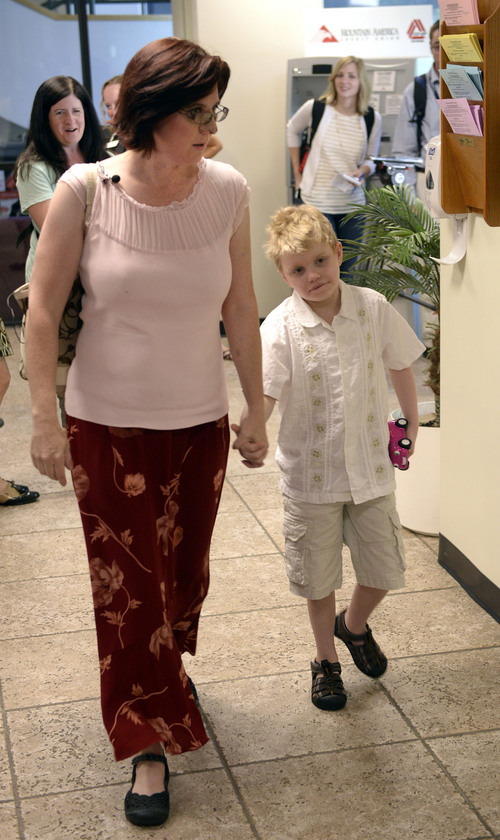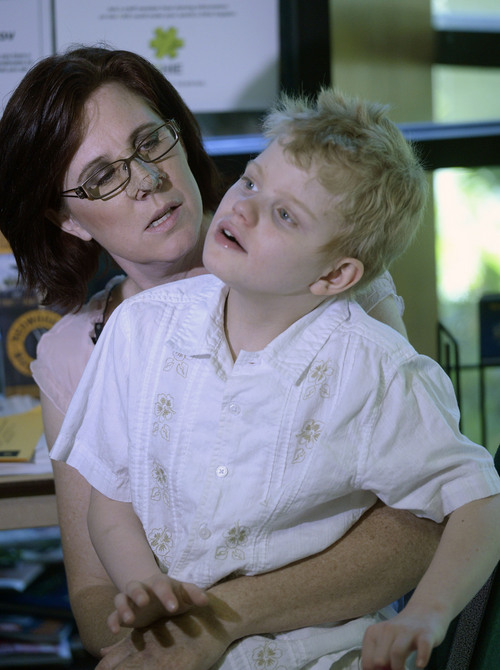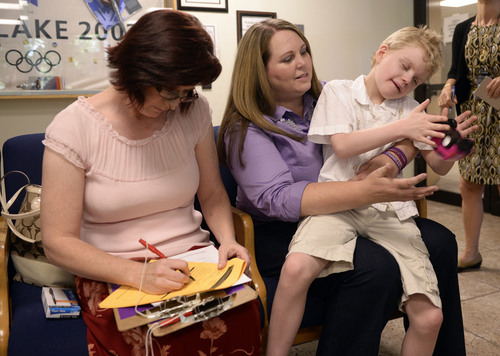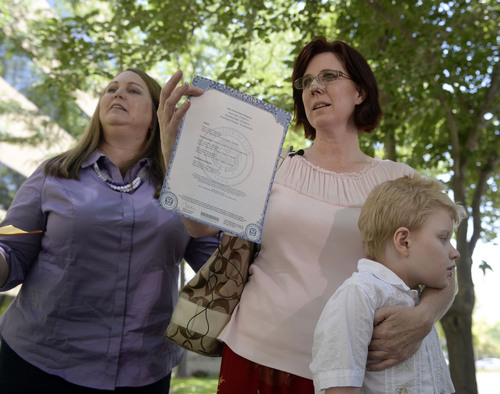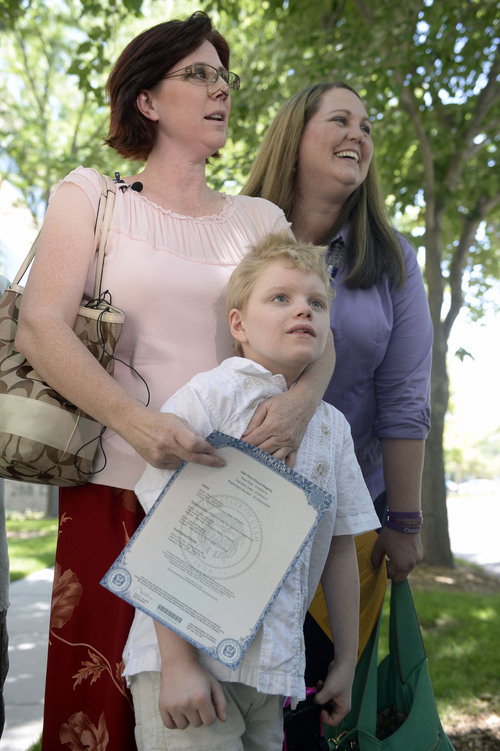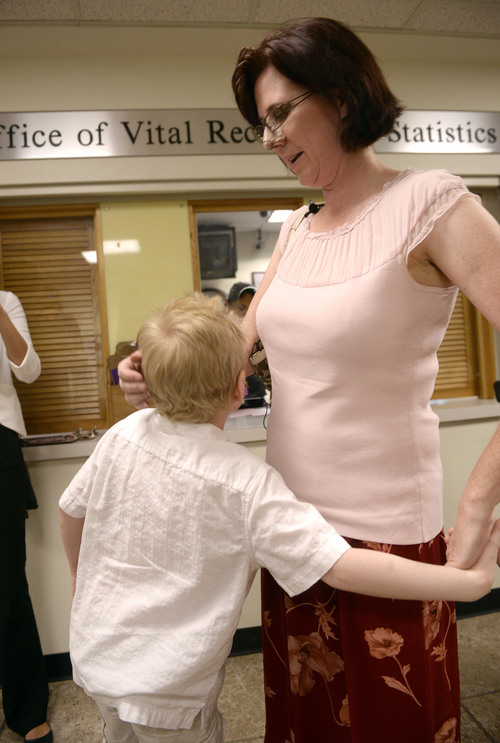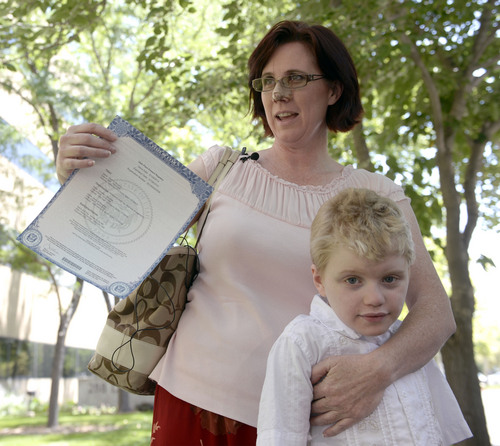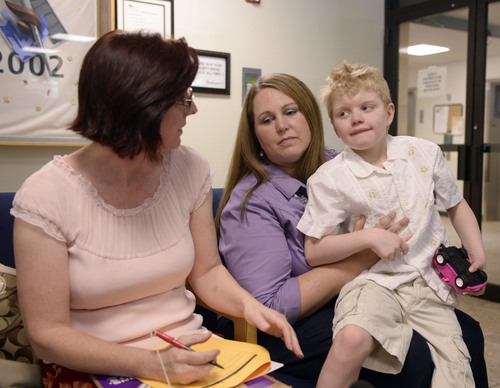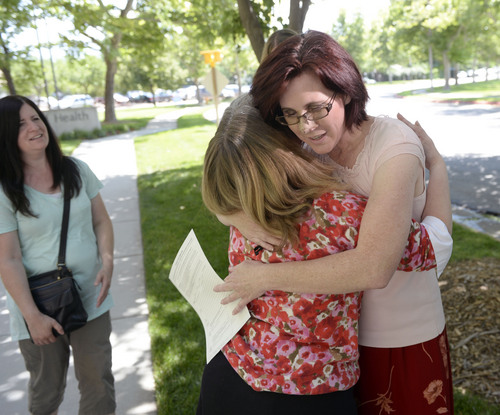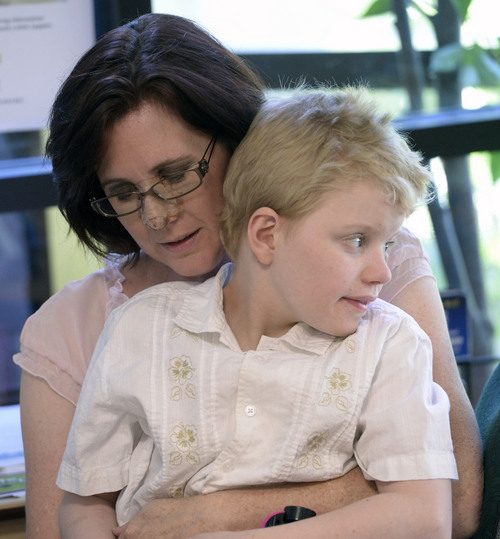This is an archived article that was published on sltrib.com in 2014, and information in the article may be outdated. It is provided only for personal research purposes and may not be reprinted.
Utah issued its first hemp extract permits Tuesday, a step celebrated by families who shared stories of their children with epilepsy to overcome lawmakers' suspicions about medical marijuana.
But families may continue to wait, since the Colorado nonprofit where many plan to acquire cannabis oil has a waiting list and a crop that won't be harvested until September.
Annette Maughan received the second of two permits issued, allowing her to legally import cannabis oil for her 11-year-old son, Glenn. He began having seizures at age 3, and Maughan is hoping the oil will decrease their severity.
"This is the single biggest day in his life," said Maughan, a mother of four from Saratoga Springs. "My hope is that he'll just play hide and seek with his [siblings], get back to enjoying what he was like when he was three."
To qualify for a permit from the Utah Department of Health, a patient must have intractable epilepsy. Applying requires a neurologist's certification and a physician's evaluation, and the fee is $400.
The law allows permit holders to possess oil that is at least 15 percent cannabidiol, the chemical in cannabis believed to have anti-seizure properties. It must contain less than 0.3 percent of tetrahydrocannabinol, or THC, the chemical that gives marijuana users a high.
Jennifer May of Pleasant Grove, whose son Stockton has a severe form of epilepsy called Dravet syndrome, said parents are scrambling to get the required signatures.
She expected few permits would be issued Tuesday because "getting a neurologist's signature in a day is an adventure."
Cost may be another barrier. Hope 4 Children With Epilepsy, an advocacy group founded by May and Maughan, plans to start fundraising for those who need help paying the fee.
Janice Houston, state registrar for the health department, said once an application and documents are complete, it takes about 15 minutes to issue a permit.
Walk-ins are accepted this week, but starting next week the department will provide appointments only on Tuesdays and Wednesdays. For rural families, Houston said, applications are accepted by mail.
Because issuing such permits is new territory for Utah, developing rules and an application system has been "very long, arduous and painful," Houston said.
But she's had the help of state registrars from Colorado and Washington, where medical marijuana systems are established, she said.
"We did what we could to allow flexibility for parents and for individuals that are trying to apply," she said. "I think the biggest impediment that we have left is the fee," which she said could decrease in future years because it covers several startup costs.
May isn't applying for a permit — yet. She's going to apply to enroll Stockton, 12, in a trial of Epidiolex, a pharmaceutical version of cannabis oil, at Primary Children's Medical Center in Salt Lake City.
The study has about 25 spots for children with treatment-resilient epilepsy. Unlike cannabis oil, Epidiolex is provided to participants at no cost and can be legally used out of state.
The permits available for the first time Tuesday were created under HB105, which was signed into law by Gov. Gary Herbert in March.
The law was nicknamed "Charlee's Law" for Charlee Nelson, a 6-year-old West Jordan girl with epilepsy who died in March, days after being honored by the Legislature. She was one of 50 Utah children on the waiting list at the Colorado nonprofit, Realm of Caring.
Once Utah residents have a permit, they can fill out an application with Realm of Caring, which places them on the list, said Heather Jackson, executive director.
The finished oil won't be shipped until October.
An average supply of cannabis oil for a 100-pound child costs about $300 a month, though patients can order more than a month's supply at a time, Jackson said.


